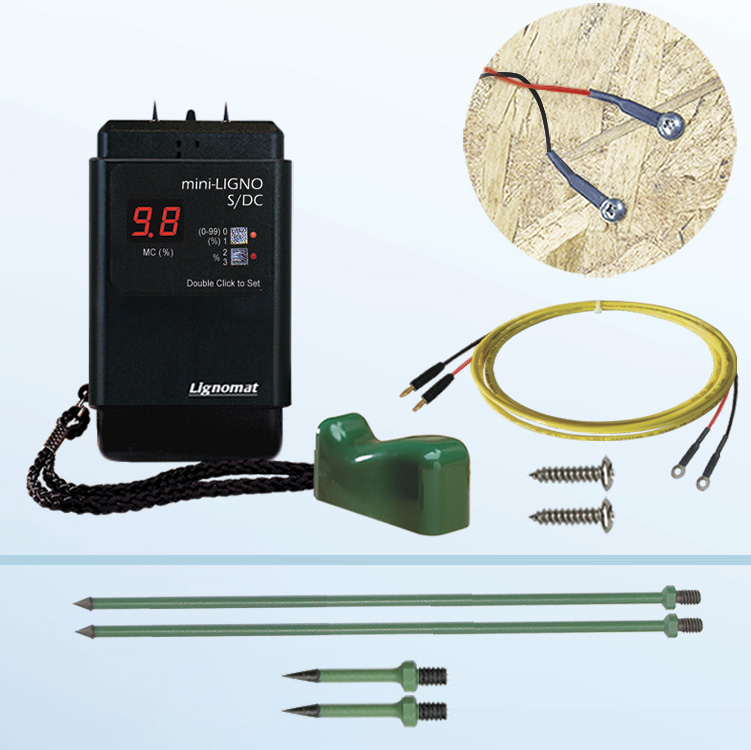Moisture Meter Acquiring Overview: What to Seek in High-Quality Instruments
Moisture Meter Acquiring Overview: What to Seek in High-Quality Instruments
Blog Article
The Ultimate Overview to Wetness Meters: A Comprehensive Introduction and How They Can Save You Money
Dampness meters serve as indispensable tools in detecting and checking moisture content in products, helping in preventing expensive problems and ensuring the high quality of items. Understanding the nuances of different kinds of dampness meters, their applications, and the possible cost-saving benefits they provide can be a game-changer for experts and services alike.
Kinds of Moisture Meters
Various kinds of dampness meters are offered for various applications in various markets. One usual type is the pin-type dampness meter, which measures the electric resistance in between two pins put into a material. This type is suitable for timber, drywall, and other structure materials. Pinless dampness meters, on the other hand, usage electromagnetic sensor plates to check a larger area without triggering damages to the material's surface area. Moisture Meter. These meters are suitable for promptly evaluating wetness degrees in big areas such as walls and floors.

In addition, there are likewise specialized dampness meters created for certain materials like soil, hay, or grain. These meters provide accurate wetness analyses customized to the special residential properties of the material being checked. Infrared moisture meters measure the thermal buildings of a product to determine its moisture material non-invasively, making them helpful for applications where pin or pinless meters may not appropriate. Comprehending the different types of wetness meters readily available can aid markets pick the most ideal device for their details dampness dimension requirements.

Benefits of Using Wetness Meters
Moisture meters provide invaluable advantages in properly keeping track of and analyzing moisture degrees in varied materials and atmospheres. One of the main advantages of utilizing dampness meters is the avoidance of potential damages created by excess dampness.
Moreover, using dampness meters can lead to raised power performance. In agricultural setups, dampness meters play an essential duty in maximizing plant yields by allowing farmers to keep track of soil wetness degrees and make notified watering choices.
How to Choose the Right Wetness Meter
When choosing a moisture meter, it's crucial to make sure that the meter is appropriate for the certain material you will certainly be screening. Various materials have differing electrical properties that can influence dampness analyses, so picking a meter developed for your product is important for precise results. By very carefully evaluating these aspects, you can select a moisture meter that meets your needs and provides precise wetness dimensions for your jobs.
Proper Techniques for Dampness Meter Usage

Expense Financial Savings Through Moisture Meter Applications
Just how can the tactical use of moisture meters result in considerable expense savings throughout different industries? Wetness meters play a vital duty in expense savings by stopping prospective damage and making certain top quality control in different fields. In the agriculture sector, dampness meters help in establishing the optimal time for harvesting plants, preventing over-drying or excess dampness that can influence the end product's quality. This accurate surveillance aids farmers prevent click to find out more unneeded losses and optimize their yield.
Similarly, in building, wetness meters help avoid pricey damages by discovering moisture degrees in structure products, such as timber or concrete, which can result in structural issues if not resolved immediately. By determining problem locations early on, contractors can take restorative procedures to prevent extensive repair work or substitutes, eventually conserving time and money.
Moreover, in the food processing industry, dampness meters are important for keeping track of product quality and ensuring compliance additional resources with safety laws. By accurately measuring moisture material in food, makers can avoid putridity, preserve freshness, and decrease waste, resulting in significant expense savings. In general, the critical application of wetness meters is a useful investment that can bring about considerable expense reductions and improved effectiveness across numerous industries.
Conclusion
In verdict, wetness meters are valuable tools for measuring and detecting wetness degrees in various products. By making use of the appropriate wetness meter and adhering to correct methods, users can efficiently prevent pricey problems caused by excess moisture.
Moisture meters offer as important devices in discovering and keeping an eye on moisture web content in products, assisting in avoiding pricey problems and making sure the quality of items. Infrared dampness meters measure the thermal residential or commercial properties of a material to identify its dampness content non-invasively, making them beneficial for applications where pin or pinless meters may not be suitable.Moisture meters provide invaluable benefits in properly assessing and keeping an eye on dampness degrees in varied materials see and settings. In farming setups, dampness meters play a crucial duty in enhancing crop returns by making it possible for farmers to keep track of dirt moisture levels and make notified watering decisions.In conclusion, moisture meters are important tools for identifying and determining wetness levels in different products.
Report this page